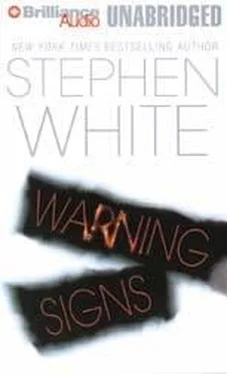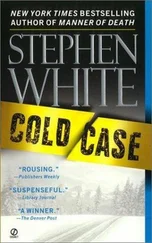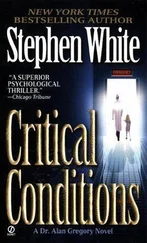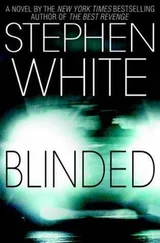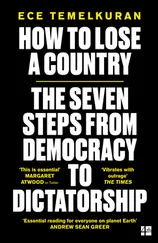I could hardly be accused of breaching confidentiality around a topic that hadn't even been specifically addressed in therapy.
The truth was that I could be so accused, but the argument I was twisting into my personal version of a double helix was comforting, nonetheless.
Second, the information that I'd provided to Sam Purdy could not reasonably lead anyone to discover the identity of my patient. The reality of my profession-for better or for worse-is that psychotherapists share information from psychotherapy sessions all the time. If the information does not provide clues that can be linked back to a specific individual, such leaks are usually treated as harmless indiscretions.
I told myself this was one of those.
Third? The third argument was for my ears only, not for Naomi's. It was this: To whom was Naomi going to complain? She could hardly go to the police with her allegations against me. And a formal petition to the State Board of Psychologist Examiners alleging malfeasance didn't seem likely. She'd have a hard time filing the charge without identifying her son. And I'd actually like to watch the ethics board grapple with the information she would provide about him.
I decided that the worst that could happen is that Naomi would storm out of my office and that I'd never hear from her again.
The trouble was this: Given the danger I feared Lauren might be in, not hearing from Naomi again was my greatest fear.
N aomi Bigg wason time for her appointment. Maybe it was because Dorsey and Shadow and the package above the stepladder were still very much on my mind, but my first thought upon seeing Naomi was that, unlike Dorsey, Naomi would never, ever cease trying to be attractive. Nor, I suspected, would she ever achieve Dorsey's level of contentment with her appearance.
Naomi's black crepe suit was impeccably pressed. Since I was congenitally unable to even bend over without wrinkling my own clothes, I was always amazed when other people could make it through a workday looking as though they had a miniature haberdasher with a steam wand stuffed in their briefcase.
I acknowledged her curt "Hello," and then I waited to discover if she'd learned of the emergency response that was taking place on Jay Street. I rehearsed my arguments while she settled herself on her chair and found a place for the big Vuitton bag. The thing thudded to the floor as though she were transporting dumbbells.
"You know," she said finally, "you never asked me what I thought about Royal Peterson's murder. We talked about the boys, and their reaction, but you never asked about me and my reaction. After I left last time, I found that odd, that you hadn't asked me about it."
No, I thought. Instead of discussing your reaction to Royal Peterson's murder, we discussed peri-menopause, a topic I find so engrossing that it often distracts me from pursuing more important things, like murder.
"You would like to talk about-"
"I didn't feel a thing." As she trampled over the end of my sentence, I couldn't tell if my words had been superfluous or if she was just ignoring me. "I didn't feel bad that a man had been killed. I didn't feel particularly good that the man who'd released my daughter's rapist was dead. Hearing that Peterson had been murdered didn't move me at all."
I said, "What do you make of that?"
Like "How does that make you feel?" it was one of those questions that made me feel like a caricature of a psychotherapist. Every time I spoke those or similar words, I was secretly embarrassed. But I asked the questions nonetheless, probably more frequently than I would like to admit.
The reason? Sometimes they worked.
And they always bought me time to think.
Naomi's response sounded rehearsed to me. She said, "Vengeance is a funny thing. If you read the final reports about Klebold and Harris-and believe me, I've read everything-and what they did at Columbine High School, their passion for vengeance had deserted them at the end. After fifteen, twenty minutes they'd lost their energy, they'd stopped hunting down kids, they'd even given up trying to explode their ineffective little bombs, and eventually they just turned their guns on themselves. I think when the adrenaline was finally totally depleted they realized that they'd failed to achieve whatever it was they'd spent a year trying to achieve. I wonder sometimes if vengeance is ever satisfying. I discuss it with Leo all the time. Every visit to prison, it seems we talk about it.
"He maintains that what he did that day in Denver wasn't vengeance. He says it was simply an act of self-respect. In his mind, he did what he had to do as a father. That was all."
"And you, Naomi, what do you think?"
"Leo? He's kidding himself. What he did to the rapist was vengeance, pure and simple."
"But he's satisfied? You just said that you wonder if vengeance is ever satisfying."
"Leo's in prison, for God's sake. He'll rationalize anything to survive that. You would, too. Don't feign ignorance, Doctor; it's not becoming." She flipped her hair off her collar with the fingers of her left hand.
As Naomi's admonition filled the space between us like a bad odor fills an elevator, it finally struck me that she and I had not spoken a single word about the bomb squad's arrival at Royal Peterson's house. We were talking about something else: high school slaughter and an imprisoned husband and father and teenage boys with enough vitriol expanding in their veins to explode their spleens.
I stifled a relieved sigh, not unaware of the irony.
"What?" she demanded.
"You didn't actually answer my question earlier. About your reaction to Royal Peterson's murder."
"You were asking me how I feel about not feeling anything? It's a preposterous question."
I cautioned myself to portray more patience than I was feeling. "What I'm wondering is… how you understand… your reaction."
Naomi crossed her legs. The toe of the dangling foot rotated side to side as though she were extinguishing an imaginary cigarette. "Don't talk to me like I'm an idiot. What I'm wondering is why I'm sitting here with you. If I understood my reaction to Roy Peterson's murder, why on earth would I put myself through this? You think sitting here with you is fun?"
Fun? No. How about rewarding, at least. Therapeutic, maybe? I suspected she wasn't done. I waited.
Suddenly, her eyes moistened and I thought she might be near tears. My immediate reaction was to consider the possibility that the sorrow I was witnessing was an act. I cautioned myself to be receptive to the possibility that the emotion was sincere. She leaned over and tugged a tissue from the box on the table by the sofa. The gesture was abrupt and fierce, as though she feared someone might be holding on to the other end of the tissue and she was determined to have it.
She said, "God. I don't want to be this way with you."
"What way?"
"This way. Exasperated. Critical. It's how I am at work. It's how I am at home. I criticized the mailman today for putting two rubber bands around the bundle of mail when one would do fine. What's that about? All the time, I'm irritable, I'm critical… I'm bitchy. I swear it's my hormones."
"You know, you have been under a little bit of stress, Naomi." I'd intended the comment to sound slightly sarcastic; Naomi's gentle laughter convinced me that I'd hit my mark.
"Yeah, I guess I have," she said.
From those hopeful words of conciliation my worst fears began to materialize. For the rest of the session I followed Naomi as she led me down the rocky path that took us back into the world of peri-menopause.
My kingdom, I prayed, for some estrogen.
I usually had no trouble generating empathy for the plight of women struggling with the assault of unbalanced hormones. But these circumstances were anything but usual. My impulse was to insist that Naomi prioritize. And insist that her number one priority should be helping me figure out what the hell Ramp and Paul were up to.
Читать дальше
